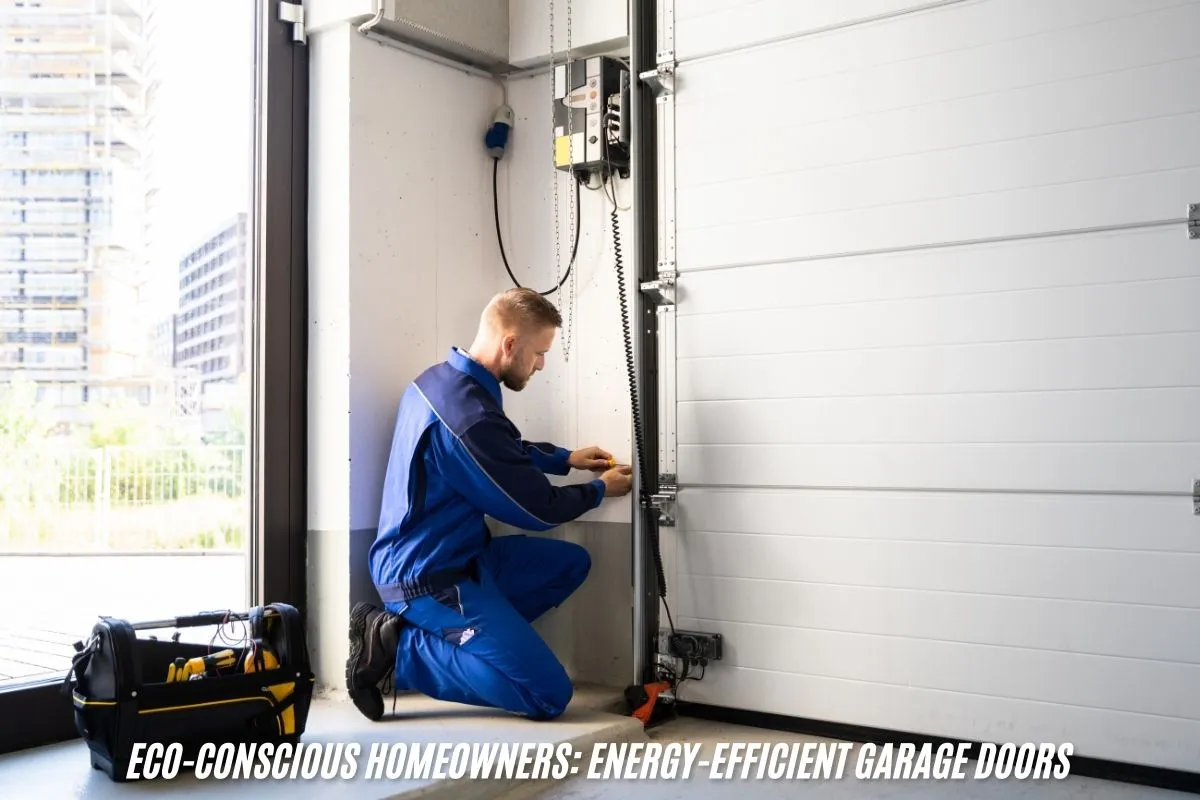When we think of energy efficiency, we often focus on large appliances like air conditioners and refrigerators. However, often overlooked, the garage door can significantly impact a home’s energy efficiency.
Why Garage Door Efficiency Matters
A typical garage door is one of the largest moving objects in a home. It’s also a major source of heat loss in the winter and heat gain in the summer. An energy-efficient garage door can help to:
- Reduce Energy Costs: A well-insulated garage door can significantly reduce your heating and cooling costs.
- Improve Indoor Comfort: By preventing heat transfer, an energy-efficient garage door can help maintain a comfortable indoor temperature.
- Protect Your Home: A sturdy, well-insulated garage door can help protect your home from the elements and potential intruders.
- Increase Your Home’s Value: Energy-efficient upgrades, like a new garage door, can increase your home’s resale value.
Key Factors to Consider When Choosing an Energy-Efficient Garage Door:
- Insulation: Look for a garage door with a high R-value, which measures the material’s resistance to heat transfer. A higher R-value means better insulation.
- Weatherstripping: Ensure the garage door is properly weatherstripped to prevent air leaks.
- Sealants: Check for any gaps or cracks around the door and seal them with weatherstripping or caulk.
- Garage Door Opener: Choose an energy-efficient garage door opener with features like soft start/stop technology and automatic light shutoff.
How to Maximize Energy Efficiency
- Regular Maintenance: Schedule regular maintenance checks to ensure your garage door is operating efficiently.
- Seal Gaps: Check for any gaps around the door and seal them with weatherstripping or caulk.
- Proper Installation: Ensure your garage door is installed correctly to maximize its energy efficiency.
- Consider a Smart Garage Door Opener: Smart openers allow you to monitor and control your garage door remotely, further enhancing energy efficiency.
How to Choose an Energy-Efficient Garage Door
1. Insulation:
- R-Value: Look for a high R-value, indicating better insulation.
- Material: Consider materials like polyurethane or polystyrene for superior insulation.
2. Weatherstripping:
- Ensure tight seals around the door, preventing air leaks.
- Check for worn-out weatherstripping and replace it as needed.
3. Garage Door Opener:
- Energy-Star Certified: Opt for openers with energy-efficient motors.
- Soft-Start and Soft-Stop Technology: These features reduce wear and tear on the opener and the door.
Benefits of Energy-Efficient Garage Doors:
- Reduced Energy Costs: A well-insulated garage door can significantly lower heating and cooling bills.
- Improved Home Comfort: Better insulation helps maintain a comfortable indoor temperature.
- Enhanced Home Value: Energy-efficient upgrades can increase your home’s resale value.
- Environmental Impact: By reducing energy consumption, you contribute to a greener planet.
Frequently Asked Questions (FAQs):
Q: How often should I inspect my garage door for energy efficiency?
A: It’s recommended to inspect your garage door at least once a year to check for any damage, wear, or gaps.
Q: Can I improve the energy efficiency of my existing garage door?
A: Yes, you can improve the energy efficiency of your existing garage door by adding insulation, weatherstripping, and upgrading your garage door opener.
Q: What factors should I consider when choosing a garage door opener?
A: Look for features like battery backup, smart home compatibility, and quiet operation.
Q: How can I determine the R-value of a garage door?
A: Check the manufacturer’s specifications or consult with a professional.
By investing in an energy-efficient garage door, you can make a significant contribution to your home’s overall energy performance. Remember, a small change can make a big difference.










